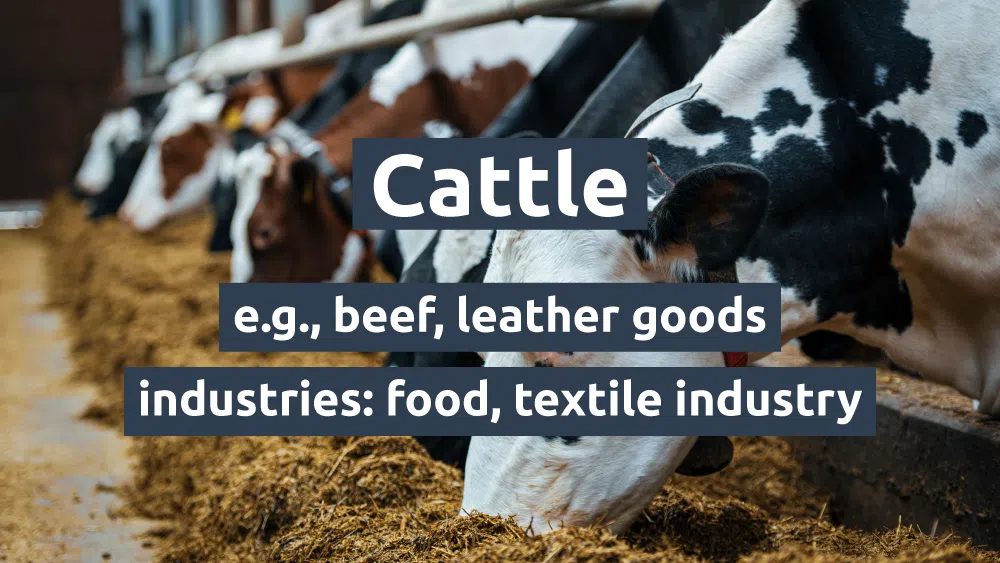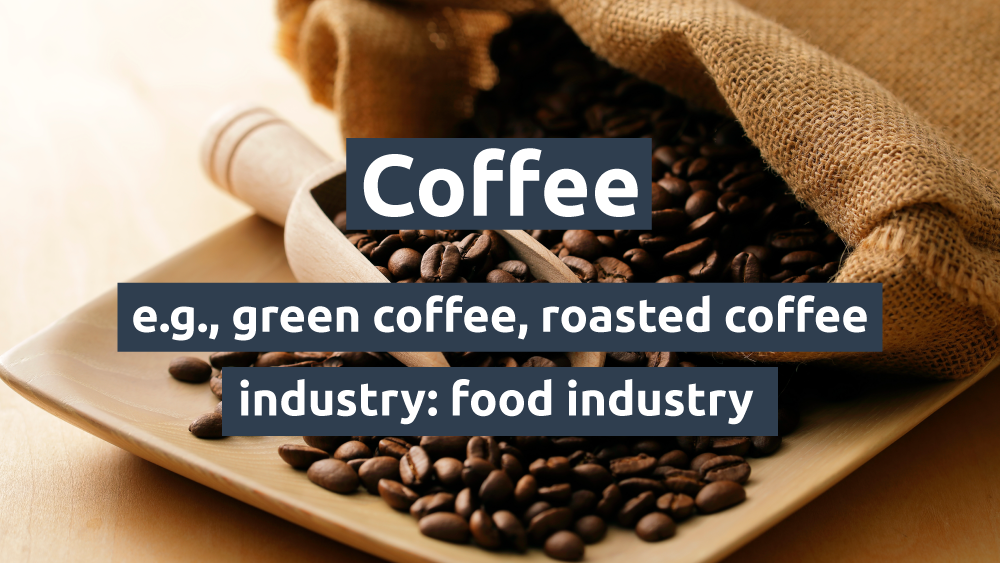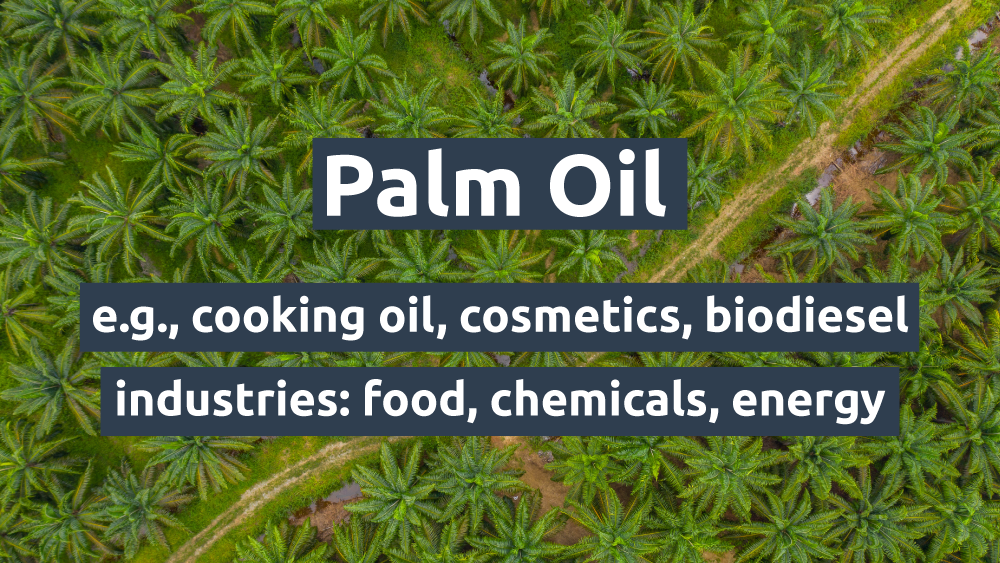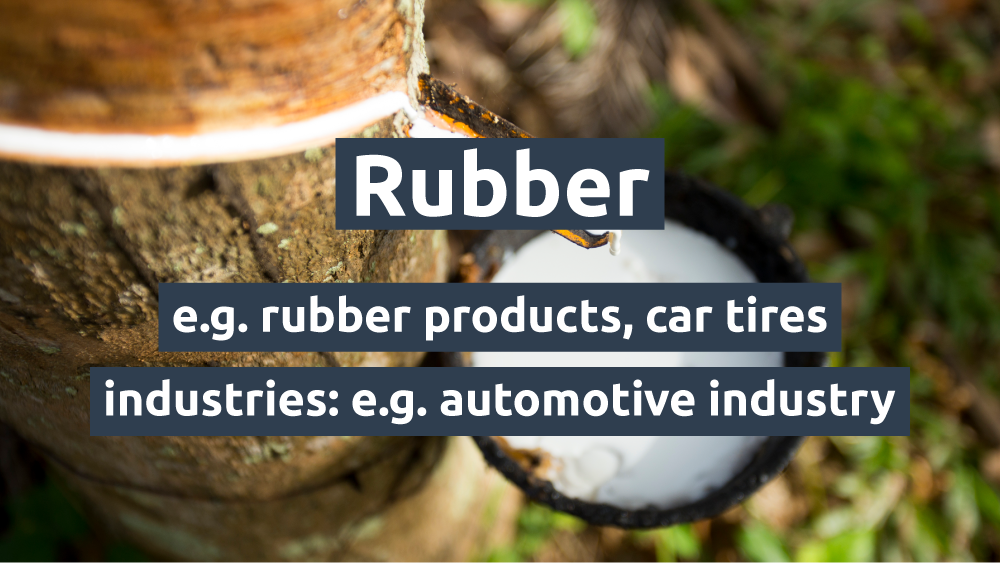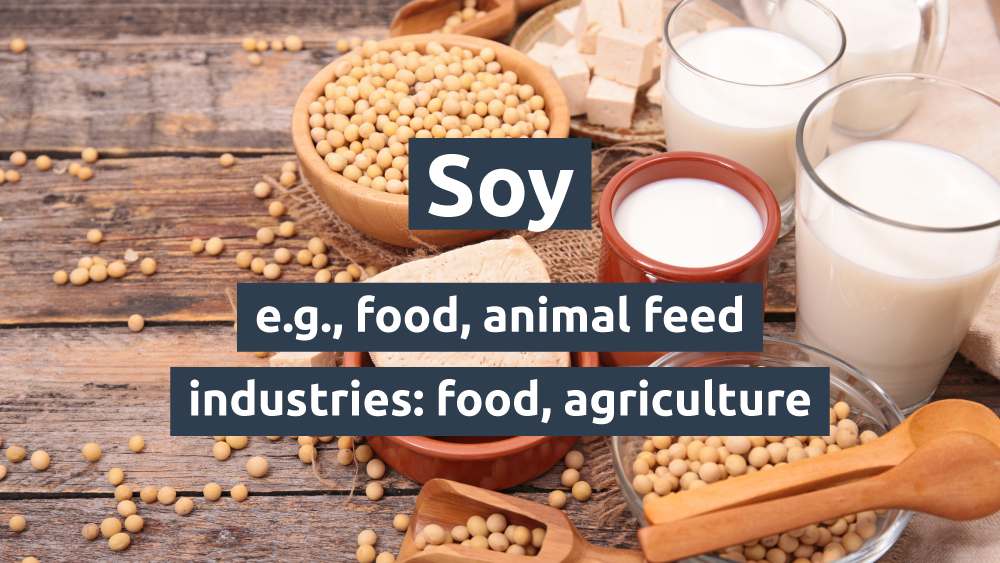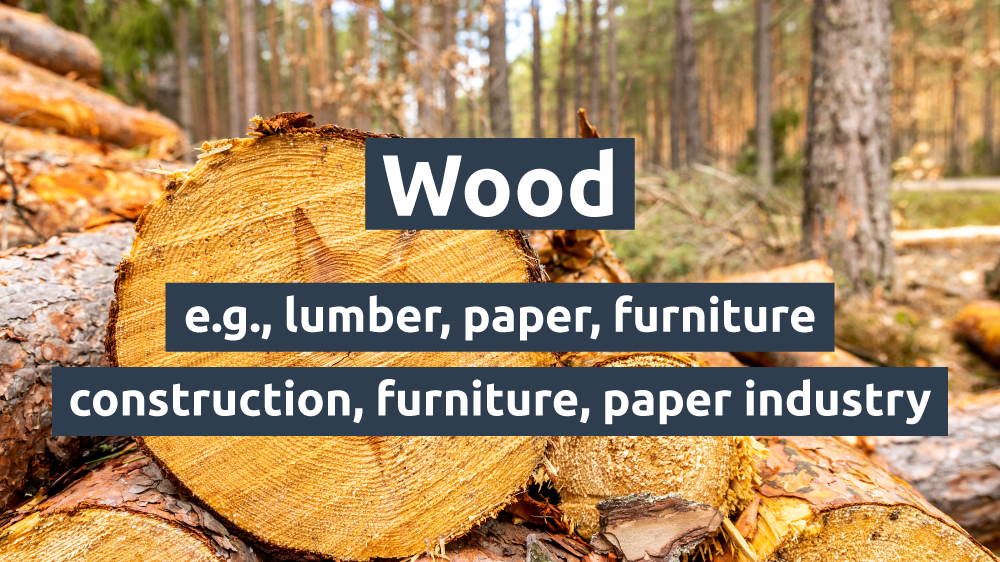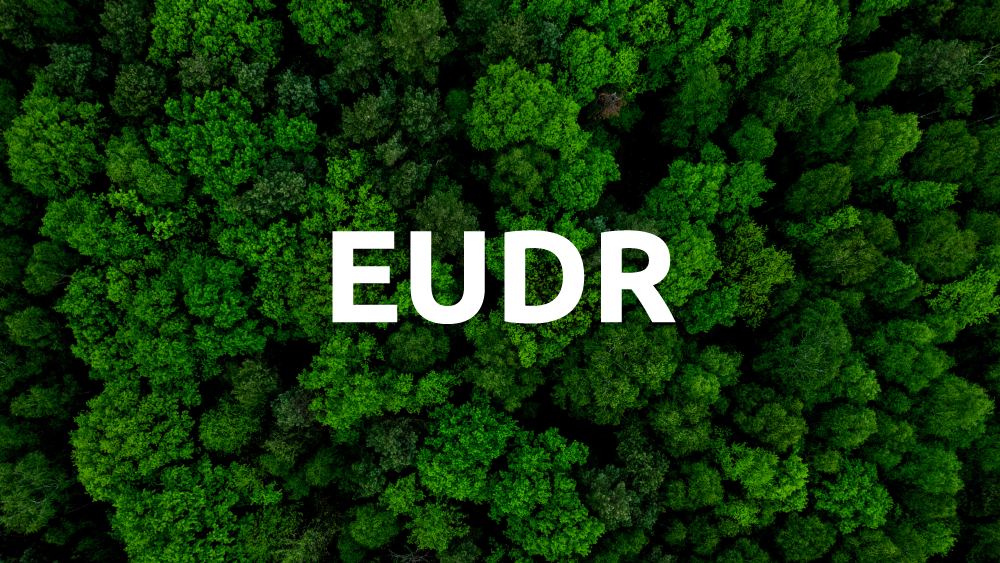EU Deforestation Regulation (EUDR)
Inhalt
- Which Companies and Products are Affected by the Deforestation Regulation?
- Due Diligence Obligations Under the EUDR Regulation
- Efficient document exchange along the supply chain
- Deadlines, Transitional Arrangements, and Effective Dates of the Deforestation Directive
- Implementation of the EU Deforestation Regulation in Companies
- Optimize processes and master EUDR
- Exceptions and Special Cases
- Penalties for Violations of the EUDR Regulation
- FAQs on the Deforestation Regulation
- Government Support
- Digitize Business Processes & Gain Many Benefits
Inhalt
- Which Companies and Products are Affected by the Deforestation Regulation?
- Due Diligence Obligations Under the EUDR Regulation
- Efficient document exchange along the supply chain
- Deadlines, Transitional Arrangements, and Effective Dates of the Deforestation Directive
- Implementation of the EU Deforestation Regulation in Companies
- Optimize processes and master EUDR
- Exceptions and Special Cases
- Penalties for Violations of the EUDR Regulation
- FAQs on the Deforestation Regulation
- Government Support
- Digitize Business Processes & Gain Many Benefits
Definition EUDR Regulation:
The European Deforestation Regulation (EUDR) is an EU-wide regulation designed to ensure that certain products on the EU market are deforestation-free. This means that the trade and import of these raw materials and goods made from them is prohibited if their production has been linked to deforestation or forest degradation in the recent past.
The aim of the regulation is to reduce deforestation and forest damage, thereby promoting climate protection and biodiversity.
The regulation—officially Regulation EU 2023/1115—was adopted by the EU Parliament and the EU Council on May 31, 2023, and entered into force on June 29, 2023.
Which Companies and Products are Affected by the Deforestation Regulation?
Specifically, the Deforestation Regulation applies to seven raw materials: wood, cattle, palm oil, soy, cocoa, coffee, and rubber, as well as all derivative products made from them. These include, for example, furniture, leather goods, food ingredients, biofuels, chocolate, coffee products, rubber products (e.g., car tires), and paper/cellulose products.
Accordingly, companies in the food industry, wood and furniture industry, construction industry, fashion and leather goods industry, and automotive industry are particularly affected.
Any company that offers the aforementioned products on the EU internal market or wishes to export them is affected. It does not matter whether the products were imported or produced within the EU. The EU Deforestation Regulation also applies to companies of all sizes, although the specific scope of due diligence obligations depends on the respective role within the supply chain. In Germany, around 370,000 companies will be affected by the EUDR Regulation; in Austria, there are no precise estimates yet.
Due Diligence Obligations Under the EUDR Regulation
Companies must ensure that the products concerned are only offered on the EU market if the following criteria are met:
Without proof of these three conditions, the raw materials and products concerned may no longer be placed on the market or exported within the EU. These requirements apply to all relevant companies along the supply chain, with the scope of the obligations depending on the role and size of the company.
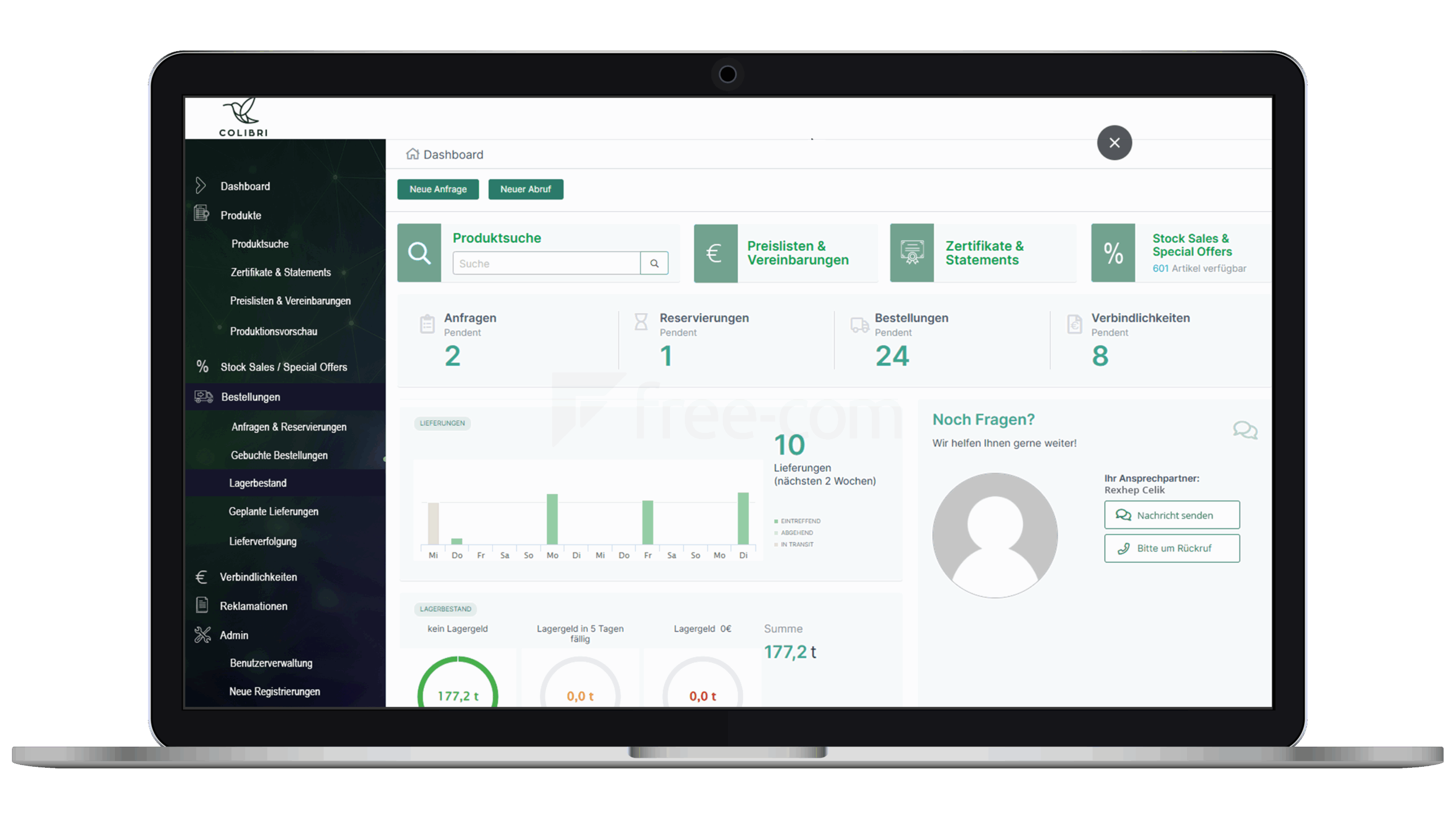
Efficient document exchange along the supply chain
A structured self-service system offers considerable advantages for the exchange of sustainability certificates, certificates of origin, or legality documents. Our AI-supported B2B portal features a highly customized document self-service system that can also provide complex, detailed, or rarely requested certificates on an individual basis. This allows EUDR documents to be exchanged centrally, quickly, and transparently.
Deadlines, Transitional Arrangements, and Effective Dates of the Deforestation Directive
Although the EUDR Regulation has been formally in force since June 2023, the obligations do not apply immediately: transitional periods are intended to give companies time to prepare. Originally, the Deforestation Directive was to become applicable 18 months after its entry into force, i.e., at the end of 2024. At that point, however, the EU bodies agreed on a 12-month extension to give the companies affected even more lead time. At the end of 2025, it was agreed once again to postpone the deadline by 12 months. Currently (as of December 2025), the following deadlines have been set:
The EUDR does not apply retroactively. It therefore does not apply to products manufactured before the regulation came into force (on June 29, 2023). Existing supply contracts and stockpiles will therefore not suddenly become illegal.
Special case of wood: For wood products, there is already an EU Timber Regulation (EUTR) that has been in force for some time. This is now being gradually replaced by the EUDR. The following applies: For wood harvested before June 2023, the EUTR remains applicable until December 21, 2028. For new timber products, the EUTR will become obsolete when the EUDR comes into force. The companies affected must therefore adapt to the new system while continuing to process their old stock in accordance with the old regulations. From 2029, the EUTR will also become obsolete for old products and all timber products will fall under the EUDR.
Implementation of the EU Deforestation Regulation in Companies
In order to comply with the EUDR, companies must establish a careful due diligence process for the products/raw materials concerned, which includes the following key steps:
In addition, it is advisable to adapt internal processes: clearly define responsibilities for compliance with the deforestation policy (e.g., in the sustainability or purchasing team), train employees, and use IT systems to ensure supply chain transparency.
Exceptions and Special Cases
Since the aim of the Deforestation Directive is to achieve a completely deforestation-free flow of goods, only a few exceptions are made. Among other things, there are special provisions in the following cases:
- Recycling and second-hand goods: for example, wood from old furniture or recycled paper. This does not cause any new deforestation. The exception is also intended to promote the circular economy. If products are falsely declared as recycled in order to circumvent the regulation, anti-circumvention provisions of the regulation shall apply.
- Low-risk countries: for raw materials from countries that the EU Commission has assessed as having a low risk of deforestation. A simplified due diligence obligation applies here. Although companies must collect information and submit a declaration, a detailed risk assessment or additional risk mitigation measures are largely unnecessary. However, this simplification only applies as long as there are no indications of non-compliance; otherwise, companies must not ignore them!
- Micro and small businesses: Companies that are exclusively active in trade and are micro or small businesses have reduced obligations. They do not have to carry out their own due diligence as long as they purchase products from EUDR-compliant suppliers. Their obligation is limited to storing the reference numbers. In addition, a simplified, one-time registration is sufficient to obtain a unique identifier that ensures traceability. This is intended to reduce the burden on small retailers. However, larger retailers that are not SMEs must still carry out their own due diligence.
- Other exceptions: Certain specific goods may be exempted by delegated act if it is shown that their risk of deforestation is negligible. As of December 2025, however, there are no general exceptions.
Penalties for Violations of the EUDR Regulation
The EU Deforestation Regulation stipulates that violations must result in severe penalties. Although each member state defines the specific penalties independently, the Deforestation Regulation sets minimum requirements for the amount and types of penalties to ensure a deterrent effect across the EU.
- High fines: A minimum maximum of 4% of annual turnover (EU-wide, last financial year) is provided for as a fine for violations. Countries may also impose higher penalties. Repeated violations result in higher fines on a sliding scale to deter repeat offenders. The penalty can therefore be very high, especially for large companies.
- Confiscation of goods and proceeds: Illegal or non-compliant products can be seized by the authorities and taken out of circulation. In addition, the economic advantage can be skimmed off: profits generated with the illegal products may be confiscated. This is to ensure that breaking the rules is not financially worthwhile.
- Exclusion from public contracts: As a further sanction, companies may be excluded from public procurement procedures and subsidies throughout the EU for up to 12 months.
- Trade ban: In serious cases or in the event of repeated violations, a temporary ban may be imposed on placing further affected products on the market. The company would then be prohibited from trading in the relevant raw materials for up to 12 months (or longer in the event of further non-compliance).
- No simplified due diligence: The right to use simplified procedures for low-risk countries may also be withdrawn.
Violations of the EU Deforestation Regulation are made public: Member States must report final judgments against companies to the EU Commission, which publishes a list of these cases. This publication increases the reputational damage to the companies.
Companies should therefore take the EUDR Regulation very seriously: even attempting to trade in non-compliant products can have significant financial and legal consequences.
FAQs on the Deforestation Regulation
Government Support
In Germany, the Federal Office for Agriculture and Food (BLE) is the responsible authority for informing companies and providing FAQs and guidelines. In Austria, the Federal Office for Forestry (BFW) takes on this role.
Both authorities organize workshops and webinars, among other things, to give companies practical tips on the EUDR.
In addition, there are industry initiatives and certification organizations that develop appropriate tools, guidelines, and, where appropriate, joint data platforms to make implementation more practical for companies.
Sources and further links:
EU Regulation (EU) 2023/1115 on deforestation-free supply chains in its first version and in its latest version
Federal Office for Forestry: EUDR – Deforestation-free products
Federal Office for Agriculture and Food: Forests and deforestation-free products
Risk classification of countries of origin

